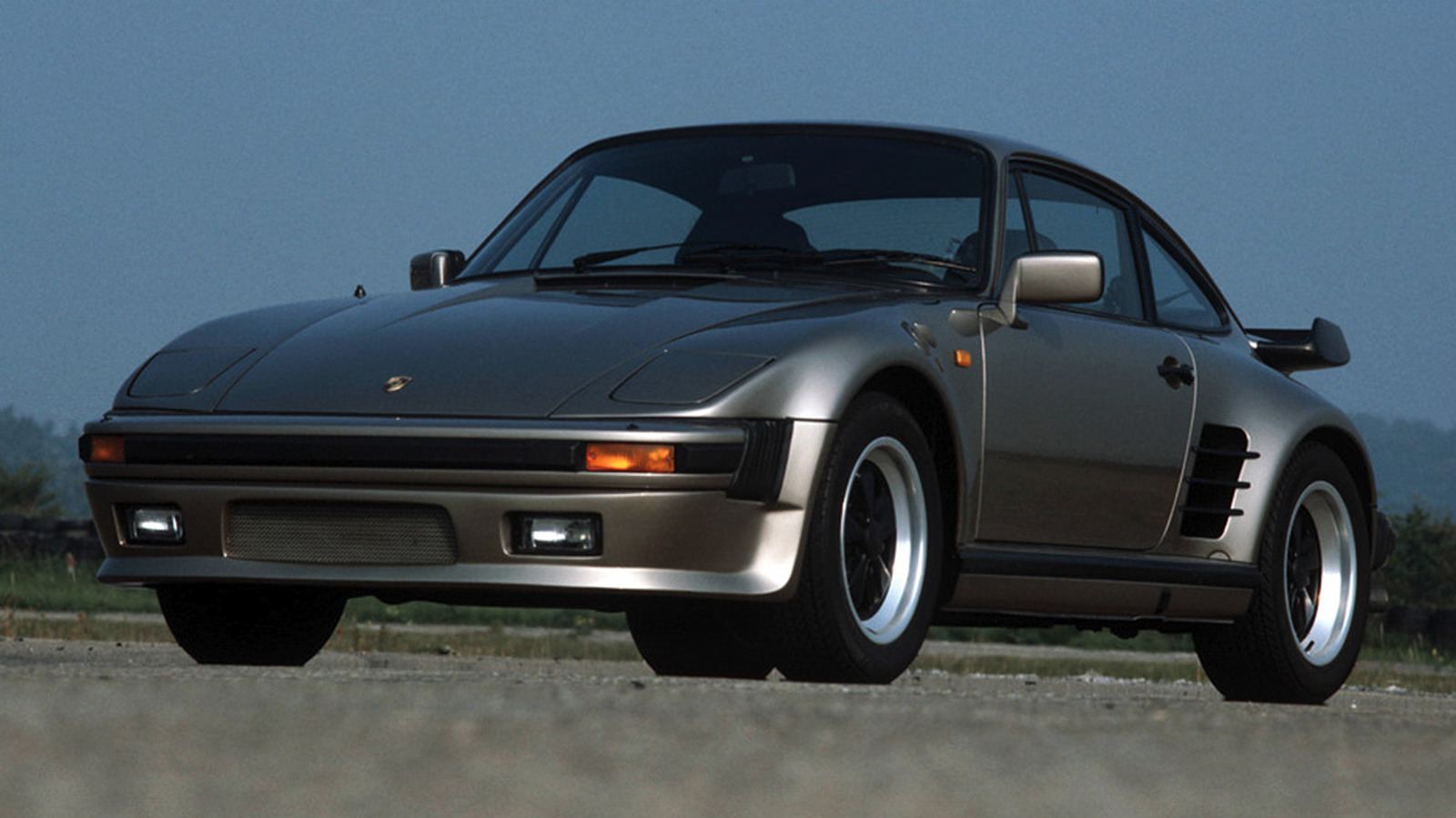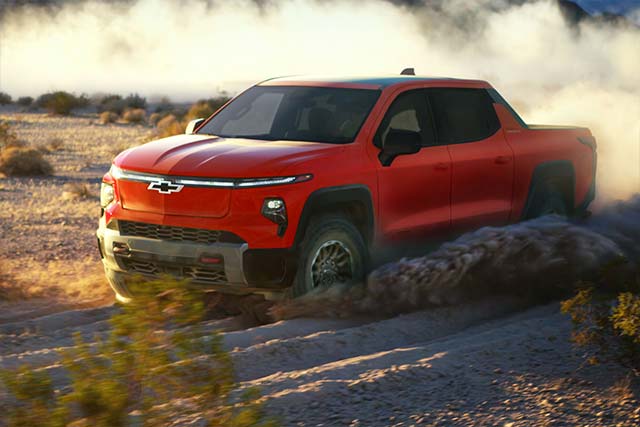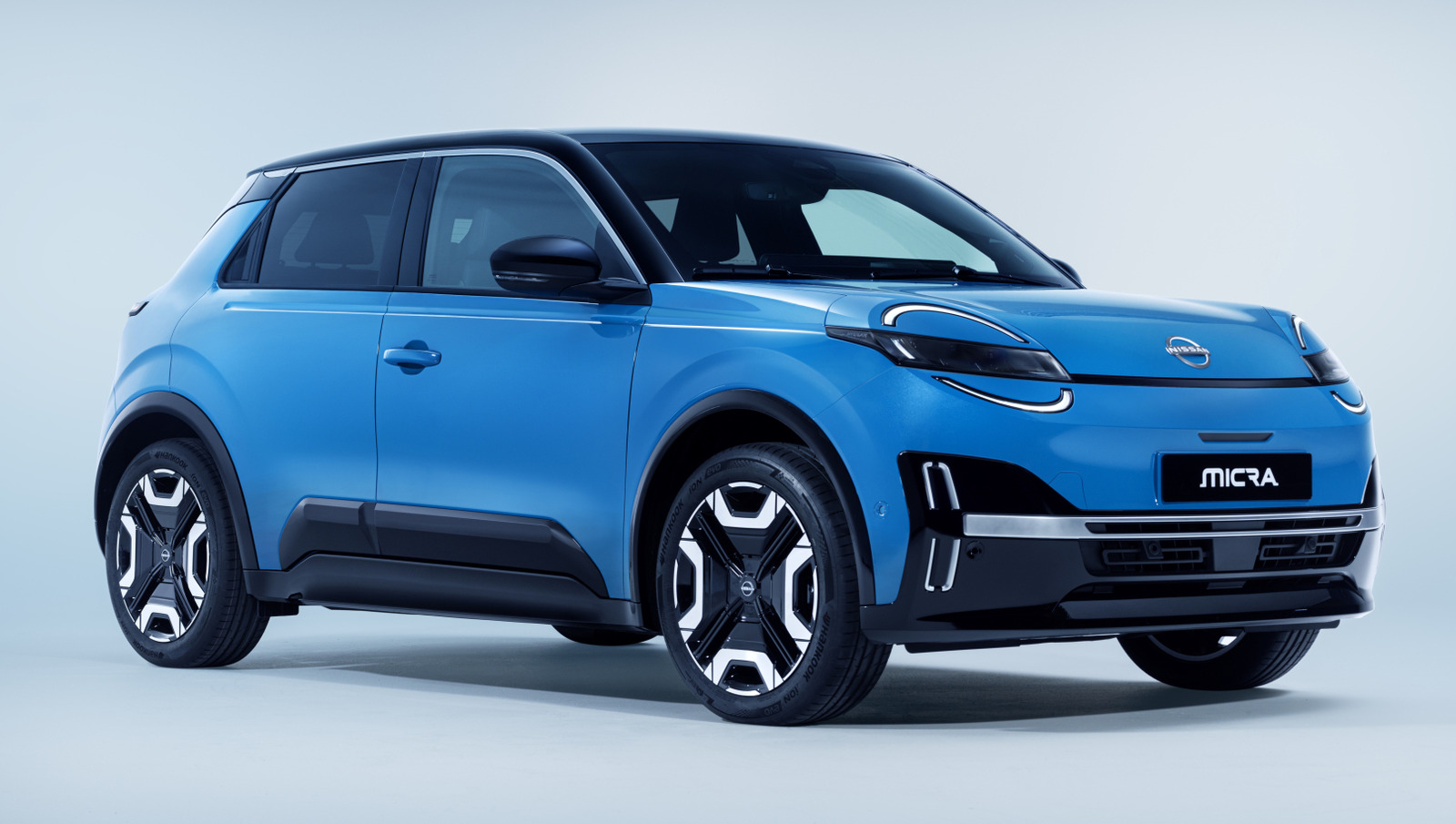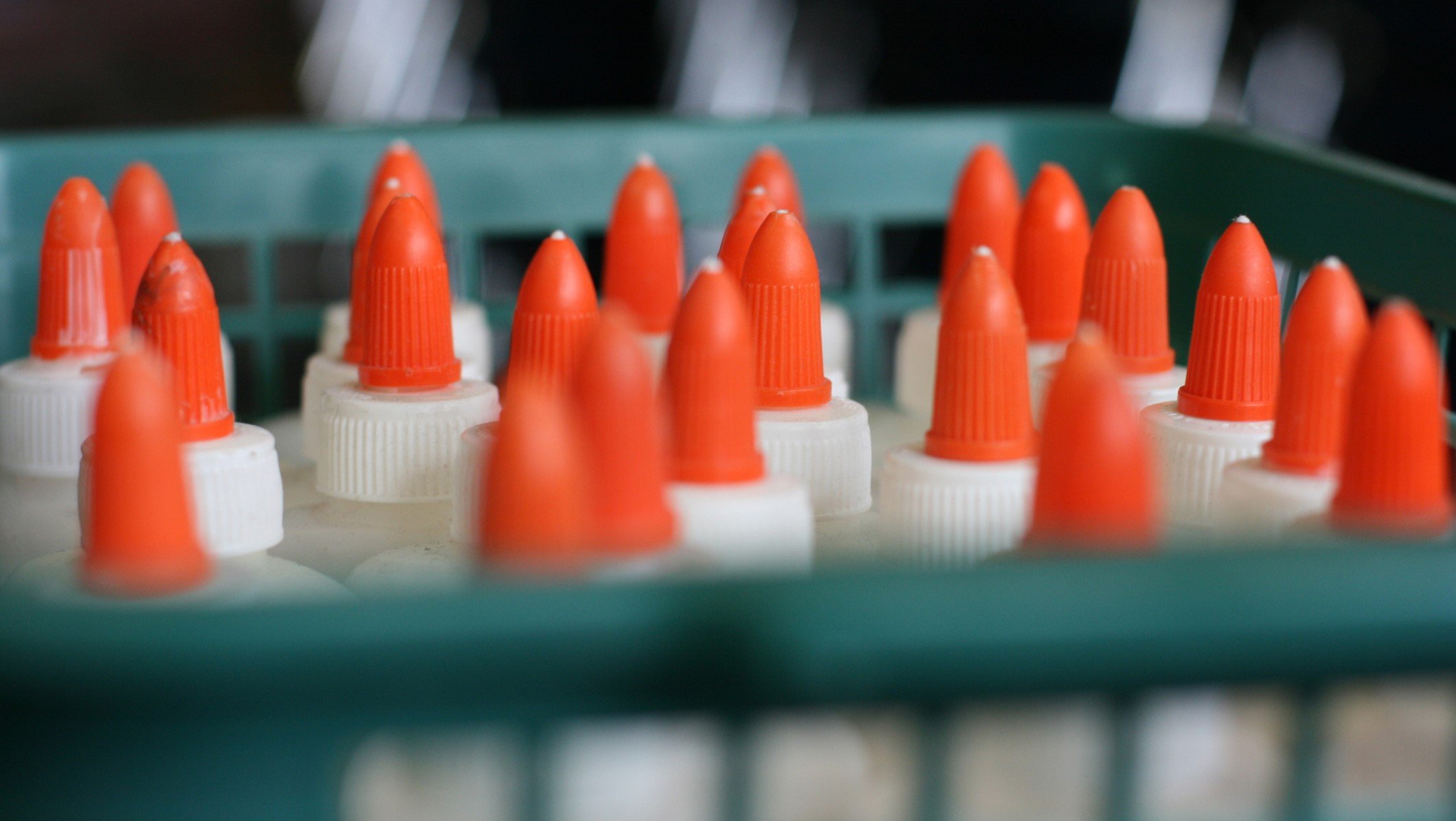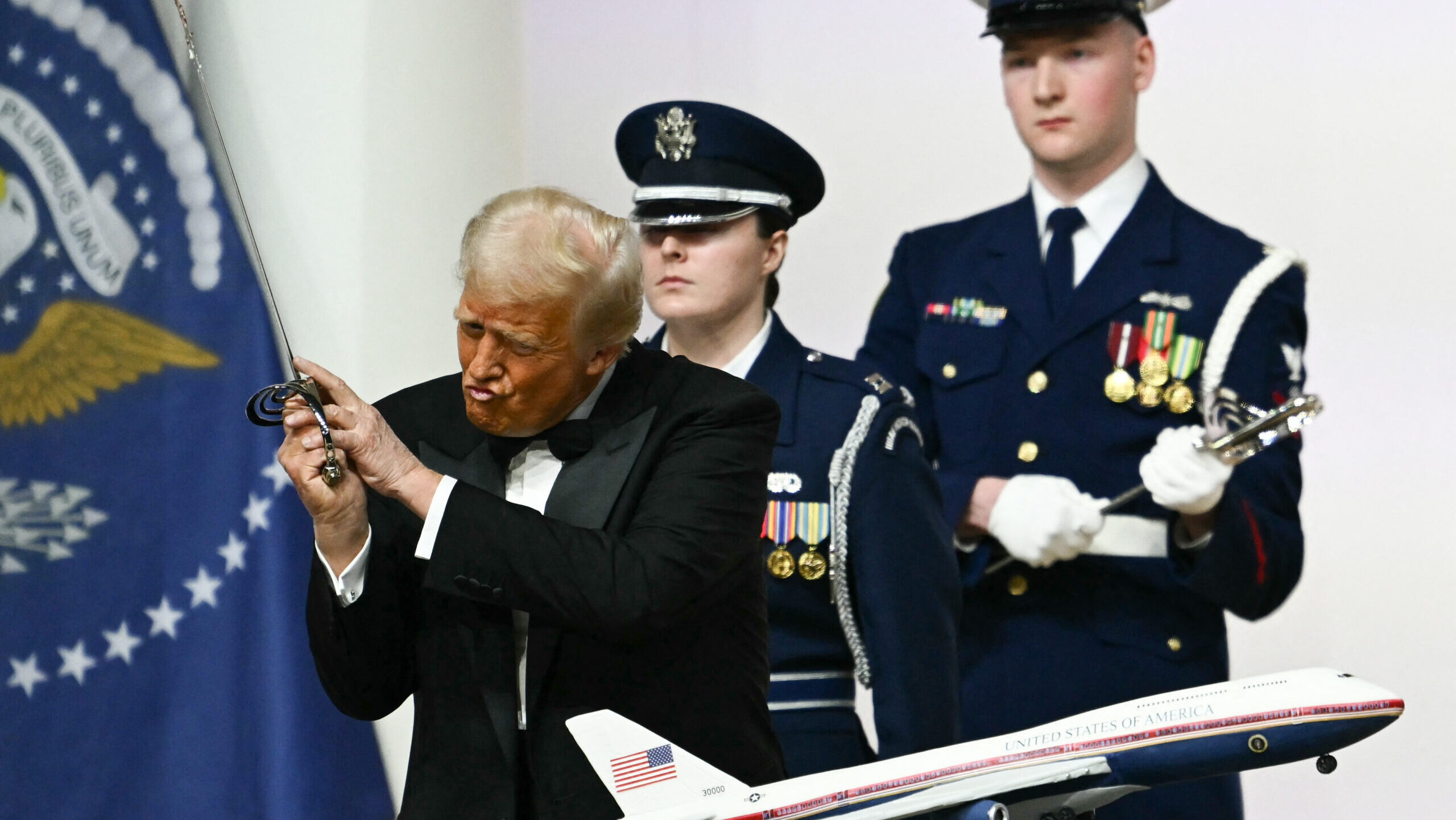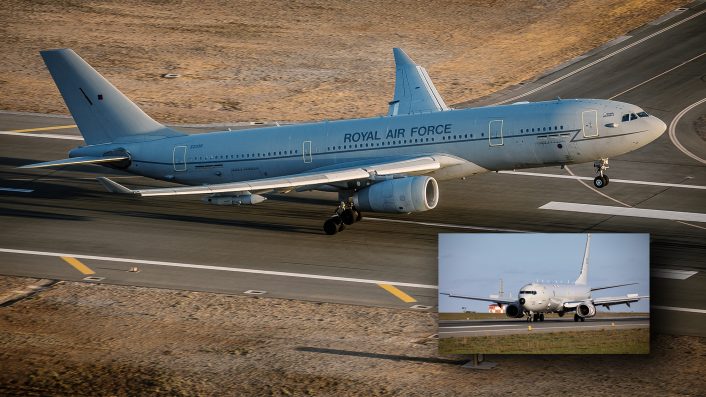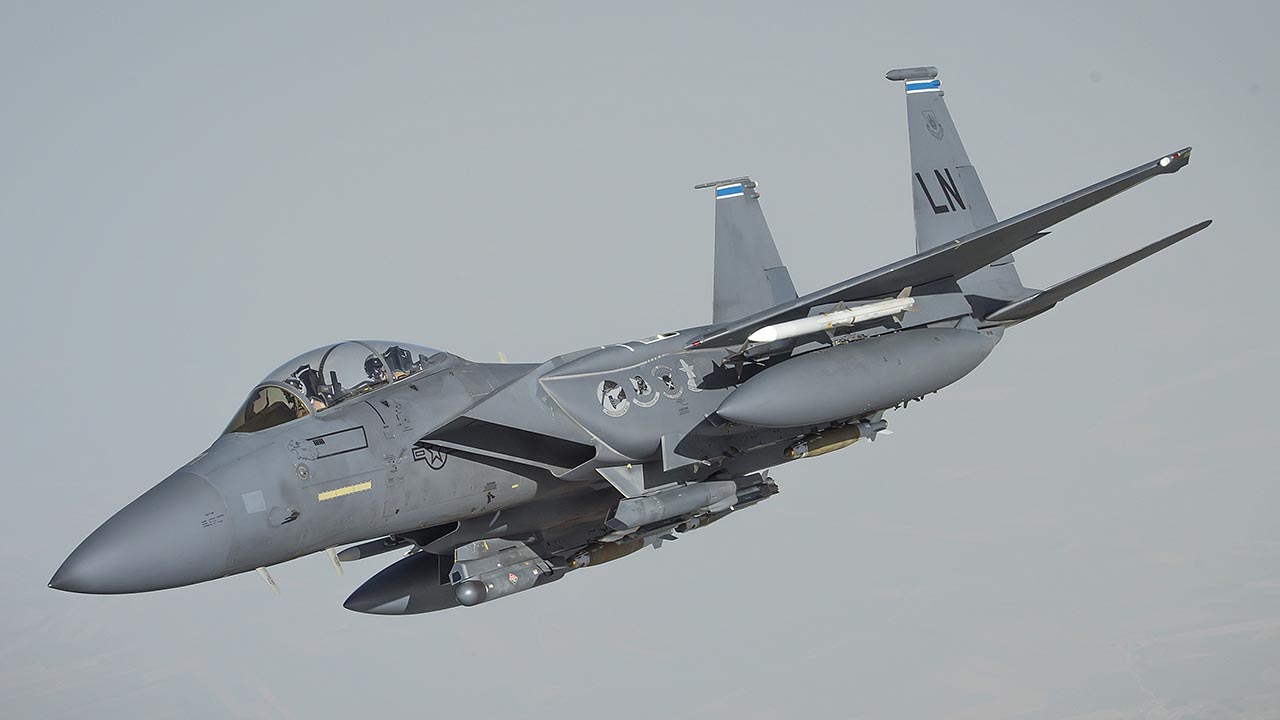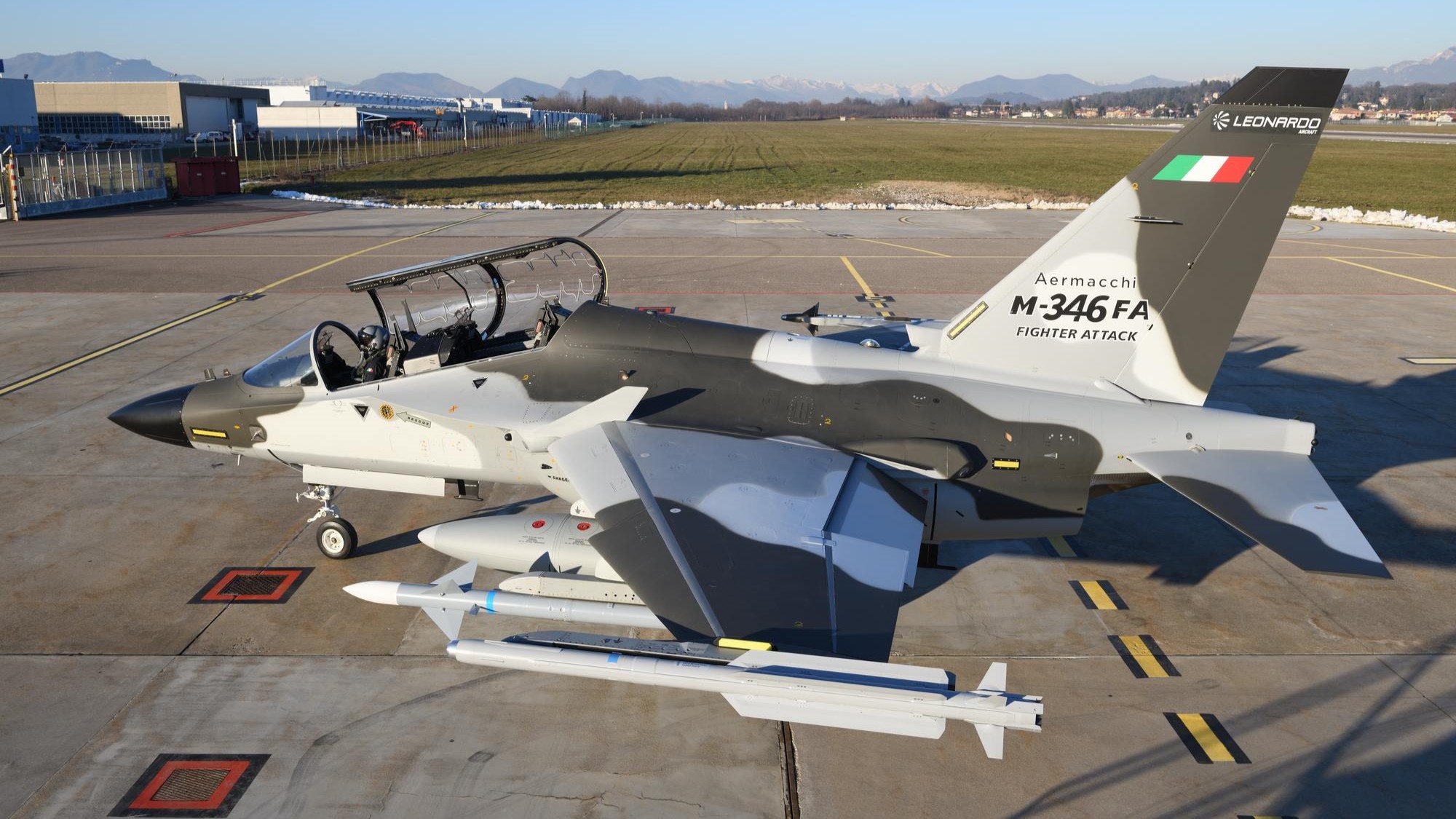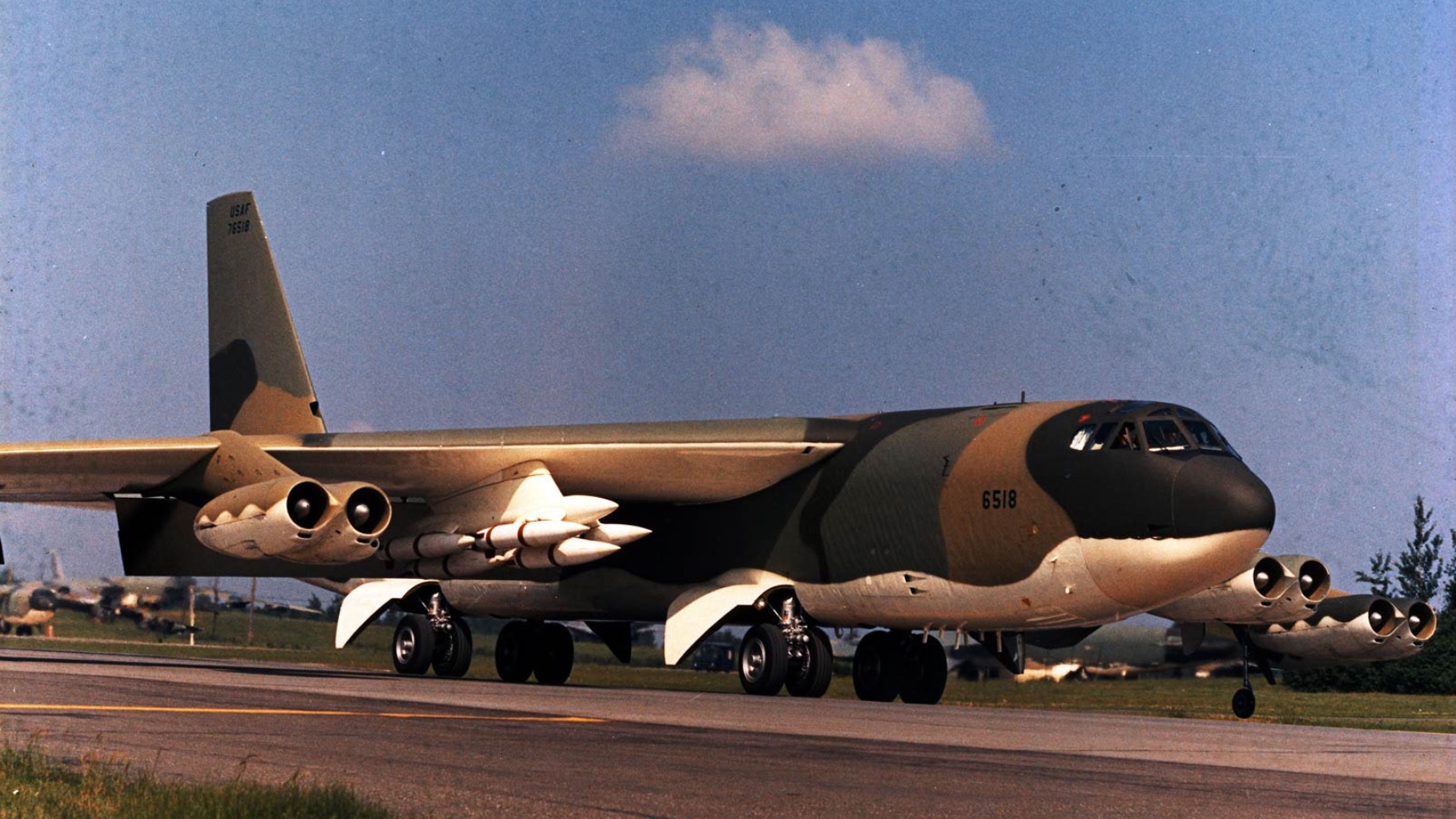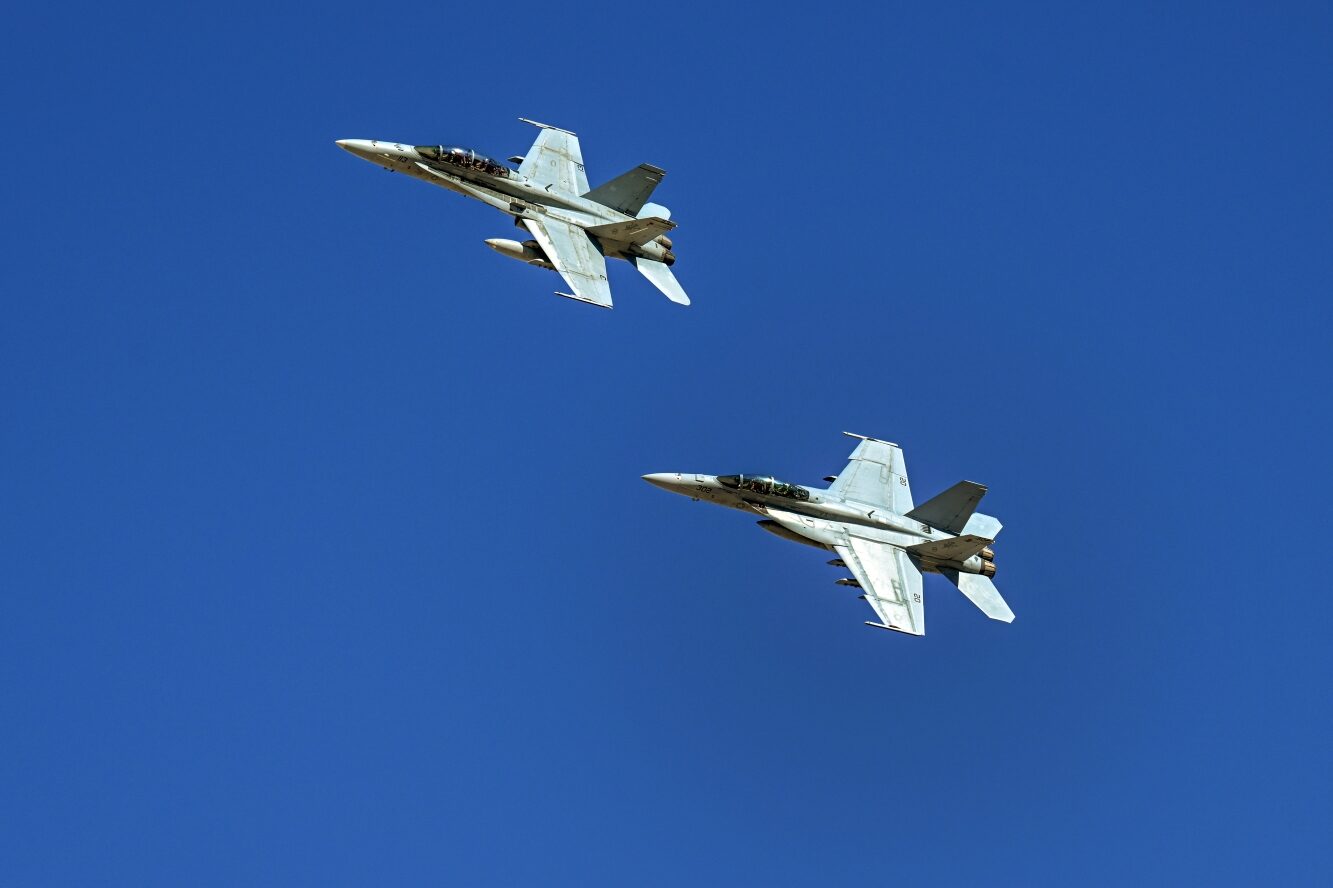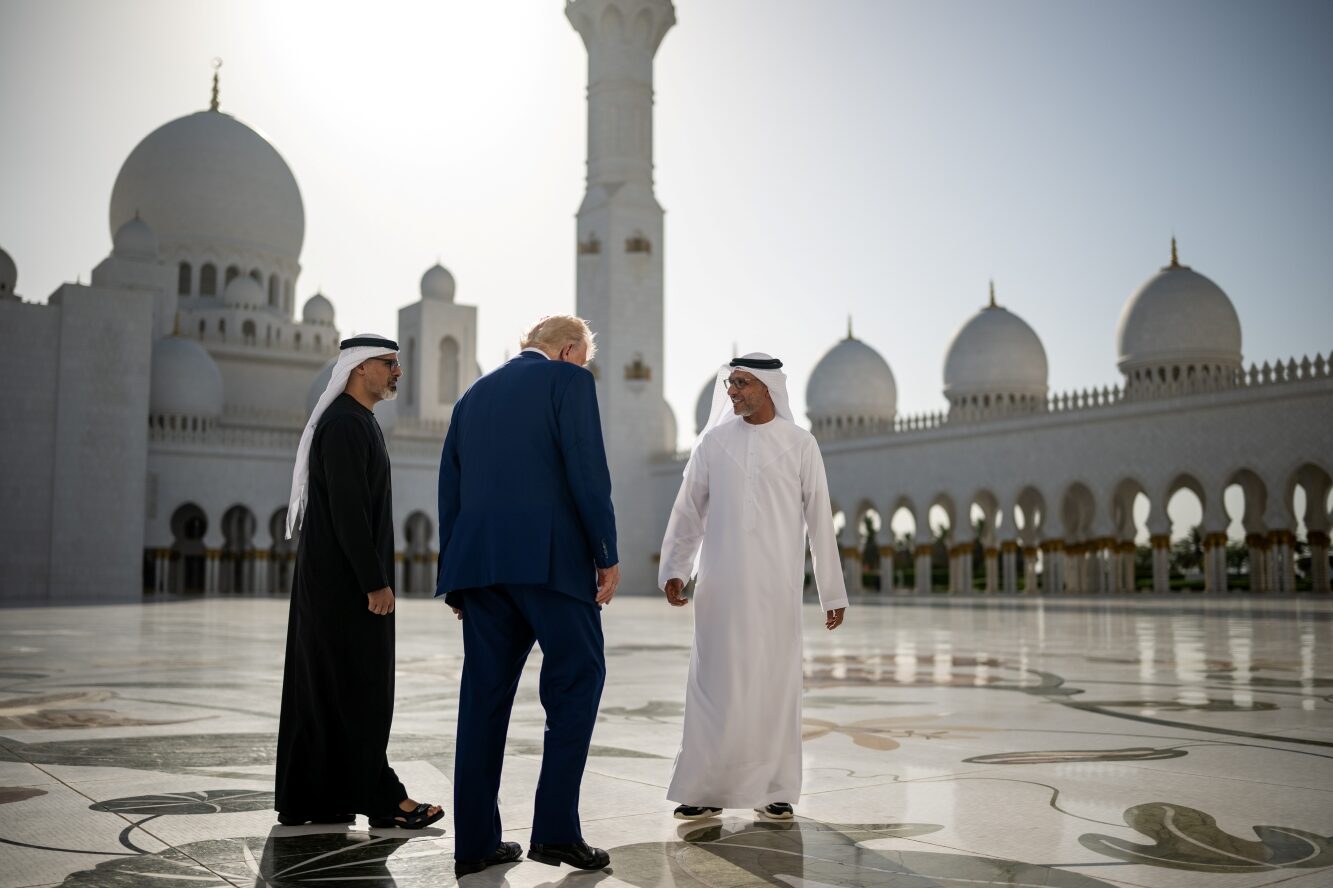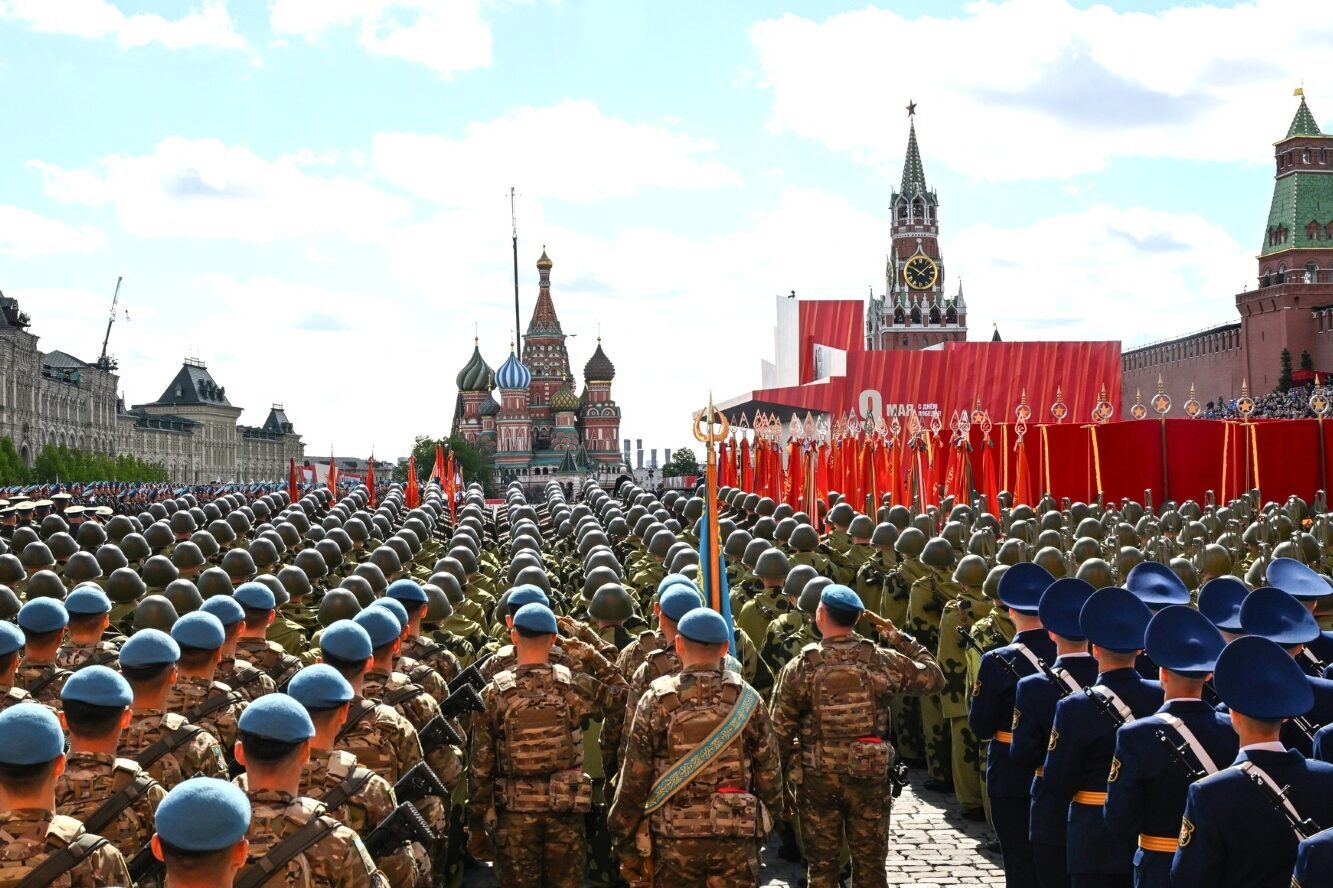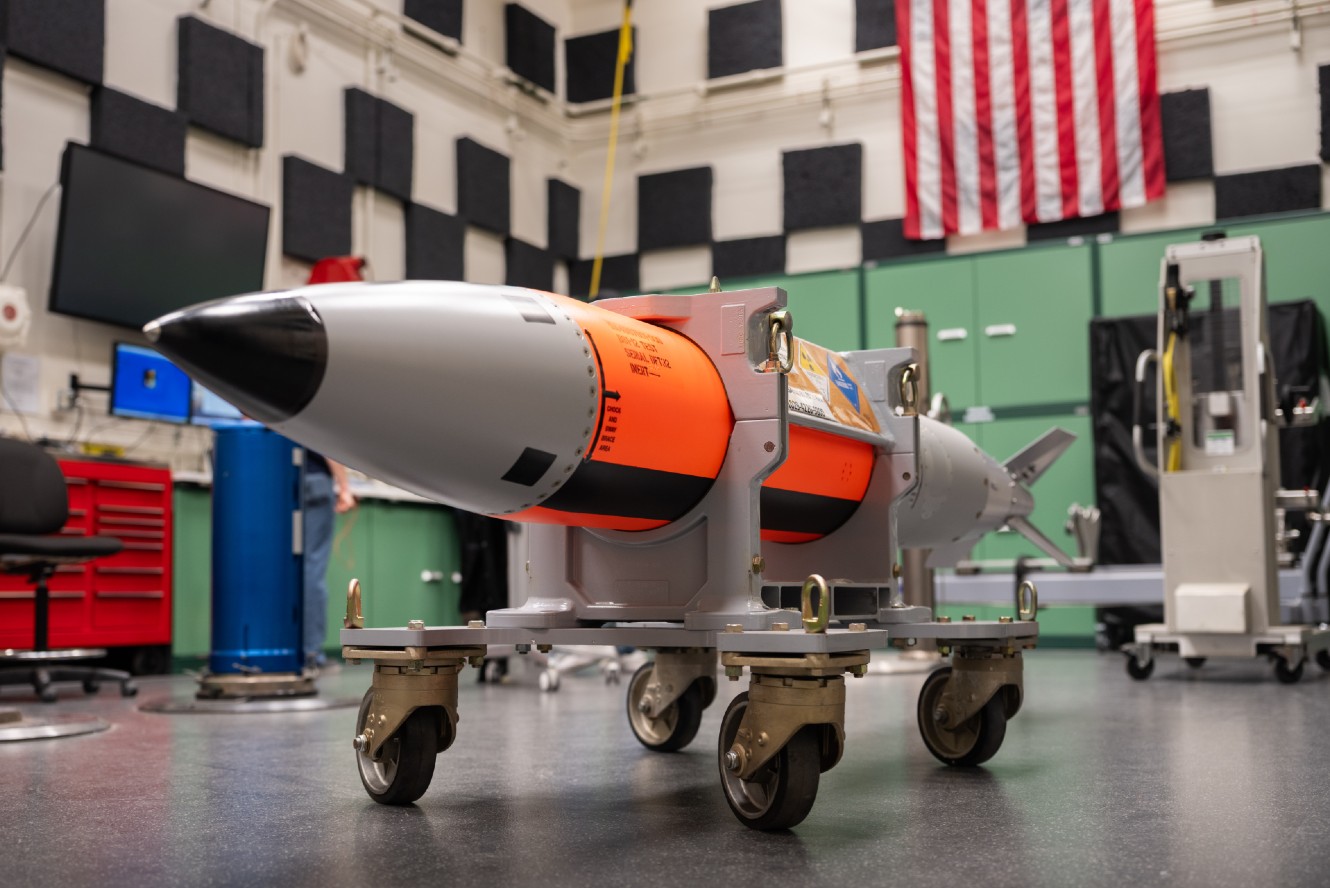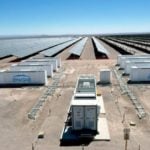Saudi Arabia in talks to buy as many as 200 MQ-9 drones, General Atomics says
“We have been in discussions with the government of Saudi Arabia and the White House for quite some time about a package that could include as many as 200 General Atomics aircraft,” a company spokesperson said.


A GA-ASI MQ-9B SeaGuardian demonstrates its maritime capabilities during European Maritime Demos (GA-ASI)
BEIRUT — General Atomics is in talks to sell Saudi Arabia up to 200 MQ-9 unmanned systems, according to a company spokesperson.
The discussions are part of the $142 billion in defense deals claimed by President Donald Trump during last week’s visit to the Gulf. While the White House has not disclosed details of what was included in that proposed package, General Atomics Aeronautical Systems (GA-ASI) spokesman C. Mark Brinkley told Breaking Defense that the drones fall under that total.
“We have been in discussions with the government of Saudi Arabia and the White House for quite some time about a package that could include as many as 200 General Atomics aircraft,” Brinkley said, adding the deal would include some mix of MQ-9B SkyGuardian and SeaGuardian designs.
Brinkley later claimed, “An initiative of that size would create an estimated 46,000 new jobs in the United States and have a significant impact on the American economy.” Whether the deal will be made through a Foreign Military Sale or a Direct Commercial Sale is to be determined, he added.
Brinkley’s statement that the package “could” include “as many as” 200 drones leaves plenty of wiggle room, and he did not disclose a dollar estimate for the deal. But any major sale of drones to the Kingdom would mark a major win for General Atomics.
While the sale may be being billed as part of the Trump announcement, it has been in the works well before the trip was announced. GA-ASI President David Alexander told Breaking Defense in February that the company was discussing what he described as the “biggest potential international deal” in GA-ASI history with Saudi Arabia, but at the time didn’t disclose the number of unmanned aerial vehicles.
General Atomics got another win during Trump’s regional tour, with Qatar and the US signing a Letter of Acceptance (LOA) for eight MQ-9Bs in Doha. However the visit didn’t revive an MQ-9B deal to the UAE that was halted during the Biden administration.
A request for comment to the Saudi Ministry of Defense was not returned.
Strategic Impact
Kristian Alexander, a senior fellow at the United Arab Emirate-based Rabdan Security and Defence Institute said that a request for such a large number “suggests Saudi Arabia is planning for a major doctrinal and operational transformation of its airpower and surveillance architecture.”
“This number far exceeds the needs of tactical missions alone and instead points to strategic ambitions: covering the kingdom’s vast territory, deterring regional threats, and developing a layered ISR (intelligence, surveillance, and reconnaissance) and strike network that integrates unmanned systems across all branches of its armed forces,” he told Breaking Defense.
Alexander added that the deal represents a geopolitical statement for the Kingdom, saying that it reinforces a pivot back toward US-built defense systems “at a time when the kingdom has flirted with Chinese Wing Loong drones and Turkish Bayraktar TB2s. It suggests Riyadh is doubling down on interoperability with U.S. and NATO systems, particularly as it pursues integration with regional security frameworks and potentially NATO partnerships.”
The sale to Doha and the potential big deal with Saudi Arabia comes at a time when the Reaper has struggled in the Gulf, with media reporting that seven Reapers, operated by the US, were shot down by Houthi forces in a six-week span.
Jacopo Maria Mazzucco, an independent researcher in Gulf security affairs, told Breaking Defense that given the vulnerability and operational context of the Gulf, “MQ-9 Reaper remains a valuable platform for Saudi Arabia, but with important caveats.”
While the system is good for low-intensity asymmetric warfare, the MQ-9 is vulnerable to “relatively basic anti-air systems, which the Houthis have exploited to partially blunt U.S. air superiority,” Mazzucco said. As a result, he stressed the need for upgrade with effective countermeasures.
“While the platform is still efficient, it requires upgrades — particularly self-protection kits and countermeasures — to remain viable in contested airspace. These should include enhanced defenses against radio frequency, infrared, and cyber threats,” he told Breaking Defense.
Analyst Alexander agreed with Mazzucco that MQ-9 losses due to Houthi attacks “while tactically significant, don’t negate the platform’s utility. They simply highlight that even high-end UAVs require protection in contested airspace, something true of all non-stealth drones.”
He didn’t expect Saudi MQ-9 to operate deep in hostile airspace without support.
“Saudi Arabia would likely use MQ-9s in layered operations: patrolling borders, cuing manned aircraft, directing ground units, or executing targeted strikes in coordination with coalition forces. In these roles, the MQ-9’s ability to loiter for hours, provide real-time targeting data, and carry multi-mode sensors is unmatched,” Alexander concluded.














